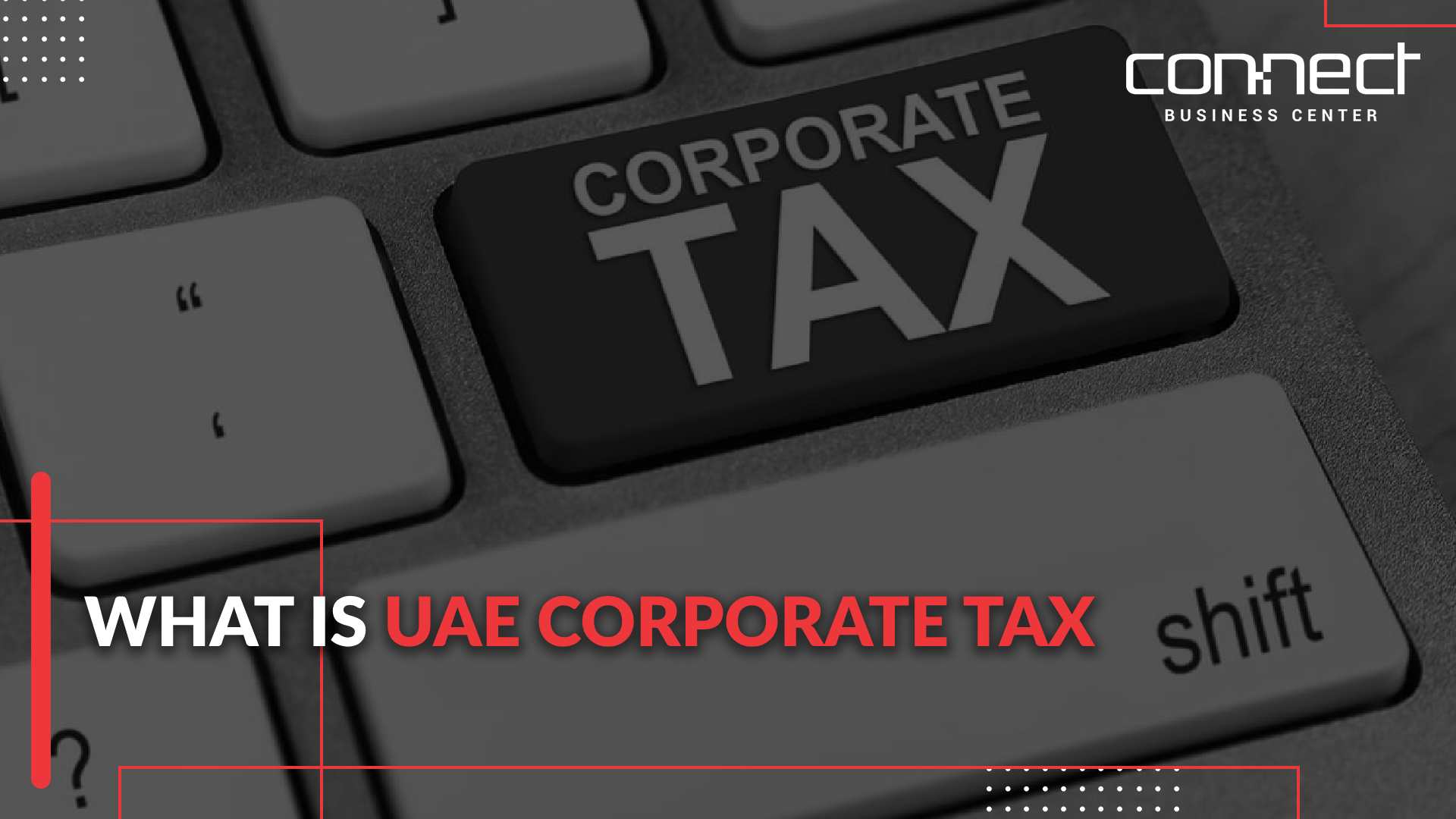Are you contemplating the prospect of a business in the United Arab Emirates? Understanding the intricacies of UAE corporate tax is pivotal for your success. The UAE boasts a tax system distinct from many other countries, making it a magnet for entrepreneurs. The UAE is renowned for its business-friendly environment, with a corporate income tax rate that is typically zero percent.
In this article, we will explore the nuances of Dubai Corporate tax, who it applies to and the different types of corporate taxes. Also, we will learn about the advantages of paying corporate tax in this dynamic nation. Businesses operating in sectors like oil and gas may be subject to corporate income tax. To navigate this landscape, understanding these notions is paramount.
What we need to know about UAE Corporate Tax
Understanding the intricacies of UAE corporate tax is vital for any business venture in this dynamic nation. The UAE corporate tax rate is a critical factor that distinguishes it from many other global tax systems. Unlike regions where corporate tax can be a substantial financial burden, Dubai, and the broader UAE, have adopted a business-friendly approach, resulting in a corporate tax rate in Dubai that is exceptionally appealing to entrepreneurs.
For those venturing into the UAE for the first time, business tax in Dubai and corporate tax in Dubai may seem like complex topics. However, the simplicity of the UAE’s tax system is a standout feature. The primary highlight is that most businesses are subject to a zero percent corporate income tax rate.
This attractive feature aims to foster economic growth, encourage foreign investment, and promote business development in Dubai and the UAE. In contrast to the business tax in Dubai, which is exceptionally favorable, many other countries impose substantial tax rates on corporate income. These high rates can significantly impact a company’s profitability.
Who Will Be Subject to Dubai Corporate Tax
When delving into the realm of UAE corporate tax, it is crucial to discern who falls under its purview. The UAE corporate tax rate is enticingly low for most businesses, offering a substantial advantage in the global business landscape. However, there are exceptions that necessitate a closer look.
One such exception applies to businesses operating in the oil and gas sector. While most companies revel in the zero percent corporate income tax rate, this sector encounters a specific tax regime. It is a testament to the UAE’s diversified economy that it maintains an attractive corporate tax environment while still extracting revenue from key industries.
Similarly, the banking sector in the UAE may experience corporate income tax, albeit at a notably lower rate than international standards. This tailored approach reflects the UAE’s commitment to accommodating diverse industries while ensuring fair tax contributions.
In summary, comprehending who will be subject to UAE corporate tax is pivotal for business planning. The UAE’s predominantly low corporate tax rate in Dubai and across the nation makes it an attractive destination.
Types of Corporate Taxes
Exploring the diverse landscape of corporate taxation in the UAE, it is essential to comprehend the intricacies of UAE corporate tax. With a zero percent corporate income tax rate for most businesses, the UAE has secured its reputation as a global business hub, particularly in Dubai.
But beyond this enticing feature, there are different facets of corporate taxation that impact businesses. Understanding corporate tax in Dubai, business tax in Dubai, and business tax in the UAE is pivotal for entrepreneurs navigating this dynamic landscape.
The UAE employs a multifaceted approach to corporate taxation, encompassing various types of taxes, each serving specific purposes in the country’s economic structure. These include Value Added Tax (VAT), Excise Tax, and Customs Duties. Each of these taxes plays a vital role in shaping the business environment in the UAE.
In this section, we will delve deeper into these various types of corporate taxes, shedding light on their significance and implications for businesses operating in the UAE.
Corporate Income Tax
Corporate Income Tax in the UAE is a key component of the UAE corporate tax landscape, with nuances that affect businesses’ bottom line. Unlike many countries, where corporate income tax is a significant financial burden, the UAE has set its corporate income tax rate at an appealing zero percent for most businesses. Then, most companies are exempt from the traditional corporate income tax burden that is common in many other countries.
For businesses, this means they can reinvest a more substantial portion of their earnings back into their operations. This tax-friendly approach fosters economic growth and development, making the UAE a prime choice for local and foreign investors. As a result, Dubai business tax rates are among the lowest in the world, attracting entrepreneurs from across the globe.
This exceptional approach to corporate tax in Dubai has positioned the city as a major business hub. The corporate tax rate in Dubai is part of the broader tax system in the UAE, making the city a magnet for corporations seeking to expand their operations.
Value Added Tax (VAT)
Value Added Tax (VAT) is a crucial component of the UAE corporate tax system, introduced in 2018 to diversify revenue sources. This tax, currently set at 5%, applies to a range of goods and services, affecting both businesses and consumers.
VAT serves as a supplementary source of revenue for the UAE government, complementing the corporate income tax system. The introduction of VAT was a significant milestone, providing a sustainable income stream for the government, which, in turn, benefits the overall business environment.
For businesses, understanding and complying with VAT regulations are essential. Companies with an annual turnover exceeding the specified threshold must register for VAT. They are responsible for collecting VAT from their customers and remitting it to the government. This ensures that businesses actively participate in contributing to the nation’s financial well-being.
The introduction of VAT aligns the UAE with international tax standards and best practices. This promotes transparency and trust in the local business environment. Understanding and adhering to VAT regulations is vital for businesses operating in the UAE, further enhancing the country’s appeal as a global business destination.
Excise Tax
Excise Tax is an integral part of the UAE’s tax landscape, distinct from the typical UAE corporate tax system. It is a consumption tax imposed on specific goods that are deemed harmful to public health or the environment. Understanding the nuances of excise tax is essential for businesses in the UAE.
UAE corporate tax rate does not directly apply to excise tax, as it targets certain products rather than business income. However, excise tax compliance is crucial for businesses that engage in the production, import, or sale of excisable goods. These businesses must calculate, report, and remit excise tax to the UAE authorities.
The UAE introduced excise tax in 2017, primarily targeting goods such as tobacco, energy drinks, and sugary beverages. This was done to promote healthier lifestyles and reduce the consumption of harmful products. The corporate tax rate in Dubai and other Emirates remained unaffected by this change, as it primarily focuses on corporate income. Compliance with excise tax regulations is vital for businesses involved in the production or import of excisable goods.
Customs Duties
Customs Duties play a significant role in the UAE’s taxation landscape, distinct from the traditional UAE corporate tax structure. Unlike corporate income tax, which applies to business earnings, customs duties are imposed on goods imported into the UAE.
While corporate tax rate in Dubai remains low and favorable for businesses, customs duties are essential for regulating and controlling the inflow of foreign products. The business tax in Dubai may not directly relate to customs duties, but understanding this facet of UAE taxation is crucial for businesses engaged in international trade.
UAE Customs Duties are levied based on the type and value of imported goods. It is vital for businesses to classify their imported products correctly to determine the applicable customs duties. Unlike corporate tax in Dubai, which is a fixed percentage of business income, customs duties vary based on the imported goods’ specifications. So, it is not a substitute for UAE corporate tax, but it complements the overall revenue structure.
Advantages of Paying Corporate Tax in UAE
When delving into the realm of business in the United Arab Emirates (UAE), understanding the intricacies of UAE corporate tax becomes paramount. The UAE’s unique approach to taxation, characterized by its alluring zero percent corporate income tax rate, is an attractive proposition for entrepreneurs.
Dubai stands out as a hotspot for businesses due to its favorable corporate tax rate. Whether you are a local or an international investor, comprehending the nuances of business tax in Dubai and corporate tax in Dubai is a key factor for success.
The advantages of paying business tax in the UAE are multi-fold. Contributing to the UAE’s unparalleled growth is one such benefit. By fulfilling your tax obligations, you become an active participant in the nation’s flourishing economy.
Moreover, paying corporate tax grants businesses access to an array of invaluable government services. From legal support to administrative assistance, these services can significantly ease your business operations, whether you are an established enterprise or a newcomer.
Contributing to UAE’s Growth
The payment of UAE corporate tax is not just an obligation but also a significant contribution to the country’s development. With its exceptionally low corporate tax rate in Dubai and throughout the UAE, businesses can thrive and at the same time, play a vital role in the nation’s economic growth.
Dubai business tax offers a compelling advantage. It is notably low, providing businesses with the opportunity to flourish while keeping their tax liabilities in check. This tax-friendly environment encourages both local and foreign investors to establish and expand their operations in the emirate.
Corporate tax in Dubai, with its business-friendly policies, attracts enterprises from diverse industries, spurring economic diversification. By fostering a vibrant business ecosystem, the government ensures that tax revenues are reinvested into infrastructure, education, and healthcare, ultimately benefiting businesses and residents.
As businesses prosper in this tax-efficient environment, the revenues generated from business tax in Dubai and business tax in UAE become essential sources for funding infrastructure projects.
Access to Government Services
Paying UAE corporate tax provides businesses with a valuable privilege – access to a range of government services. The enticingly low corporate tax rate in Dubai and across the UAE, including business tax in Dubai, opens doors to these services.
One of the key benefits is legal support. Businesses can seek legal counsel and assistance, ensuring that they operate in compliance with local regulations. This service is particularly valuable for foreign investors navigating the UAE’s unique business landscape.
Administrative support is another advantage. Businesses can efficiently handle documentation, permits, and other administrative tasks. Streamlining these processes can significantly reduce bureaucratic hurdles, saving both time and resources.
Access to government services extends to sectors like education and healthcare, where businesses can tap into an educated and healthy workforce. This not only benefits businesses but also contributes to the overall prosperity of the UAE, bolstering the strong connection between corporate tax in Dubai, the UAE, and the growth of the nation.
Conclusion
In conclusion, UAE corporate tax stands as a linchpin in the nation’s commitment to fostering a business-friendly environment. The local corporate tax rate of zero percent for most businesses, including foreign ventures, is a compelling proposition. It distinguishes the UAE from many other global hubs, making it an ideal choice for entrepreneurs seeking to establish.
Dubai business tax policies align with this vision, promoting economic growth and foreign investment. The absence of corporate tax in Dubai has encouraged diverse industries to flourish. This is not merely a tax break; it is a strategic approach to attract companies, boost economy, and secure the UAE’s position as a regional economic powerhouse.
Understanding business tax in Dubai and the broader business tax in the UAE landscape is essential for a successful venture. Remaining informed about corporate tax rates in Dubai and related taxes offers a competitive edge in the dynamic market. In this tax-friendly climate, businesses thrive, governments prosper, and both local and global entrepreneurs find an ideal platform for growth.
Would you like to know more about this and other topics? Then, visit our insights section.








